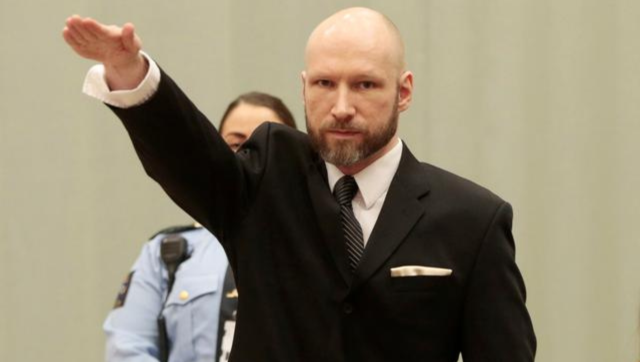Anders Behring Breivik, a mass murderer in Norway, has taken legal action against the government, alleging that his human rights have been violated through his prolonged confinement in extreme isolation. His lawyer, Oeystein Storrvik, informed Reuters about this development on Friday. Storrvik explained that Breivik is suing the government due to enduring extreme isolation for a span of 11 years, during which he has had no interactions with anyone other than his guards. Breivik, responsible for the horrific act of killing 77 individuals in a combined mass shooting and truck bombing in July 2011, is currently serving the maximum sentence permissible under Norwegian law, which is 21 years. This event marked the worst instance of peacetime brutality in the nation’s history. There’s the possibility for judges to extend his sentence if he continues to be viewed as a threat beyond that period. Having spent the initial nine years of his sentence in Skien prison and reportedly growing weary of the monotony of his environment, Breivik was relocated to Ringerike prison last year. Even there, he remains under strict maximum security conditions, including solitary confinement, as per his lawyer’s account. Storrvik expressed his disappointment, stating, “We had hoped for better conditions and for him to be able to interact with others.” In 2017, an appeals court overruled a prior decision by a lower court, which had found that the conditions of Breivik’s three-room cell violated his rights. In 2016, an Oslo court had deemed the separation from other inmates to be “inhuman or degrading treatment or punishment,” due to the perceived threat he posed. At the time, the government argued that Breivik’s influence on inspiring others necessitated his isolation from fellow inmates and the outside world. However, compared to the United States, where solitary cells are significantly smaller, his living conditions are relatively comfortable. The convicted terrorist is allowed to engage in video games, use a computer without internet access, exercise with gym equipment, and peruse books and newspapers. He’s even pursuing a political science degree through studies. Breivik is permitted to correspond via letters, although prison staff often censor these communications if they are thought to incite hate crimes. Although Breivik submitted a parole application last year, it was denied after the court determined that he still posed a threat to society. The judge’s ruling highlighted Breivik’s lack of empathy and compassion for his victims, emphasizing that he hadn’t changed since committing the appalling murders. He attempted to justify his actions, in which he targeted mostly teenagers at a Labour Party youth camp on Utoya Island, contending that the victims were not children but individuals in “leadership positions.” Breivik’s latest legal action is set to be heard in the Oslo district court next spring, according to his lawyer’s statement.
Mass murderer serving 21 years jail-term in Norway cries human rights violation, sues government
Abhishek Awasthi
• August 20, 2023, 10:13:09 IST
The convicted terrorist is allowed to engage in video games, use a computer without internet access, exercise with gym equipment, and peruse books and newspapers. He’s even pursuing a political science degree through studies.
Advertisement
)
End of Article